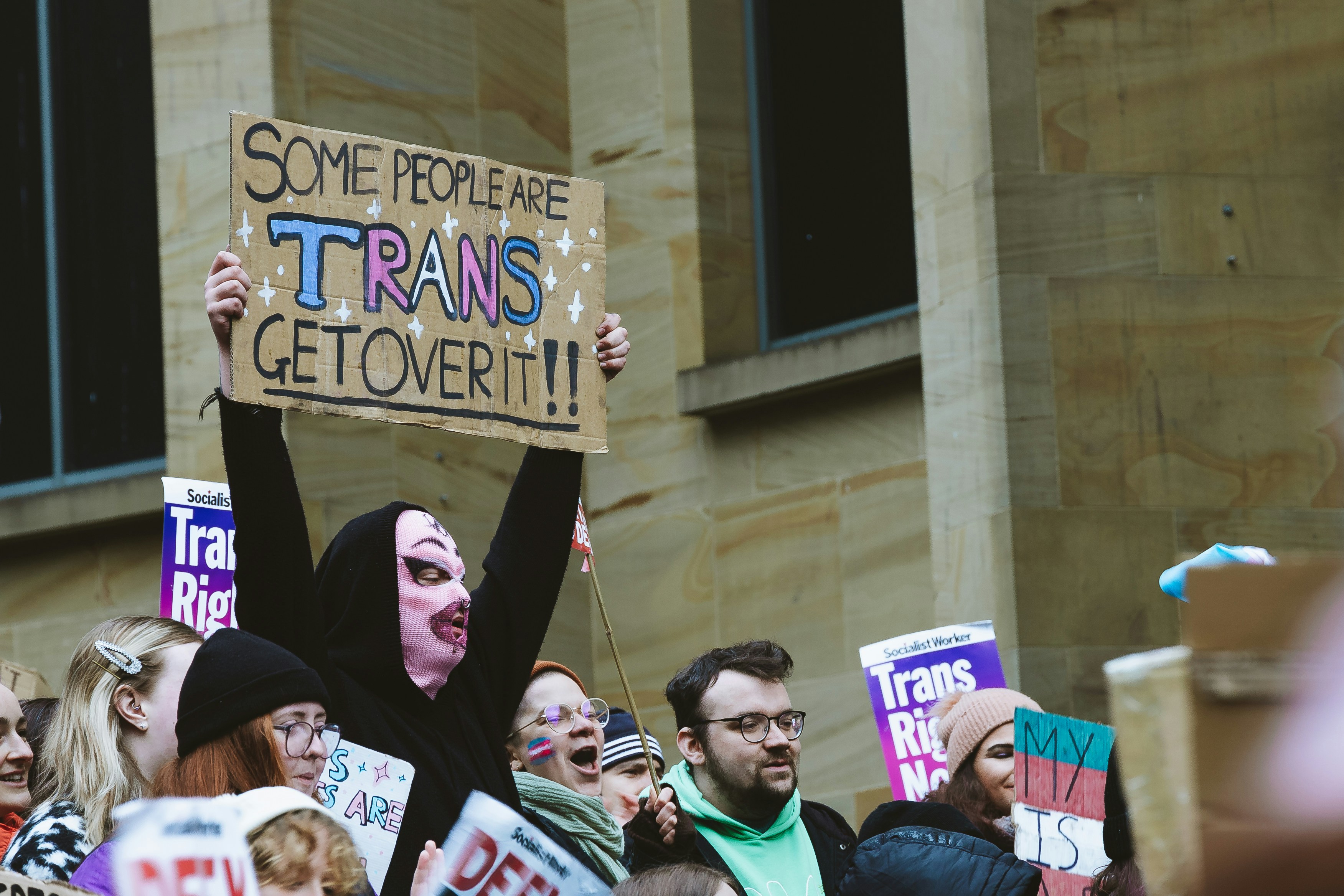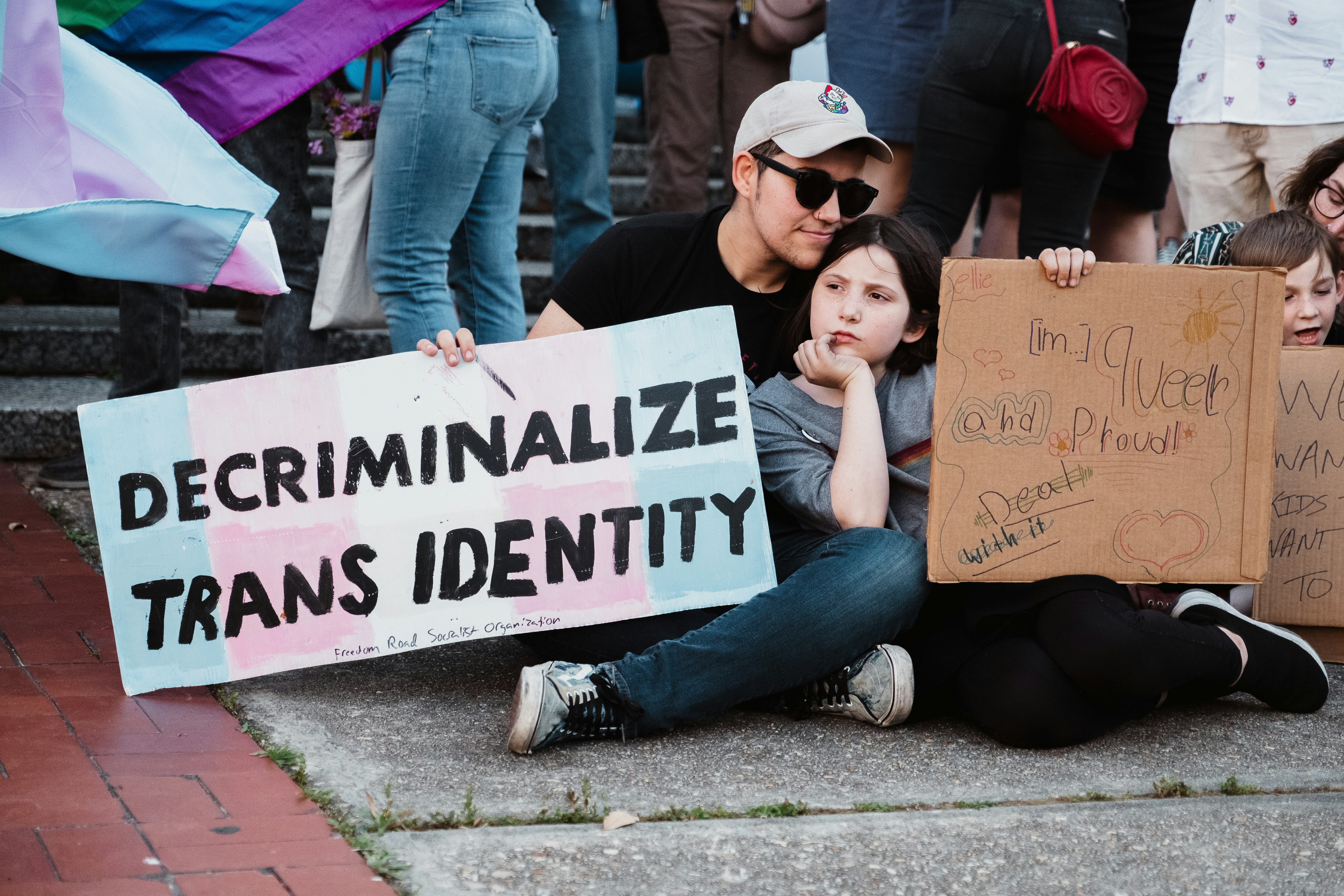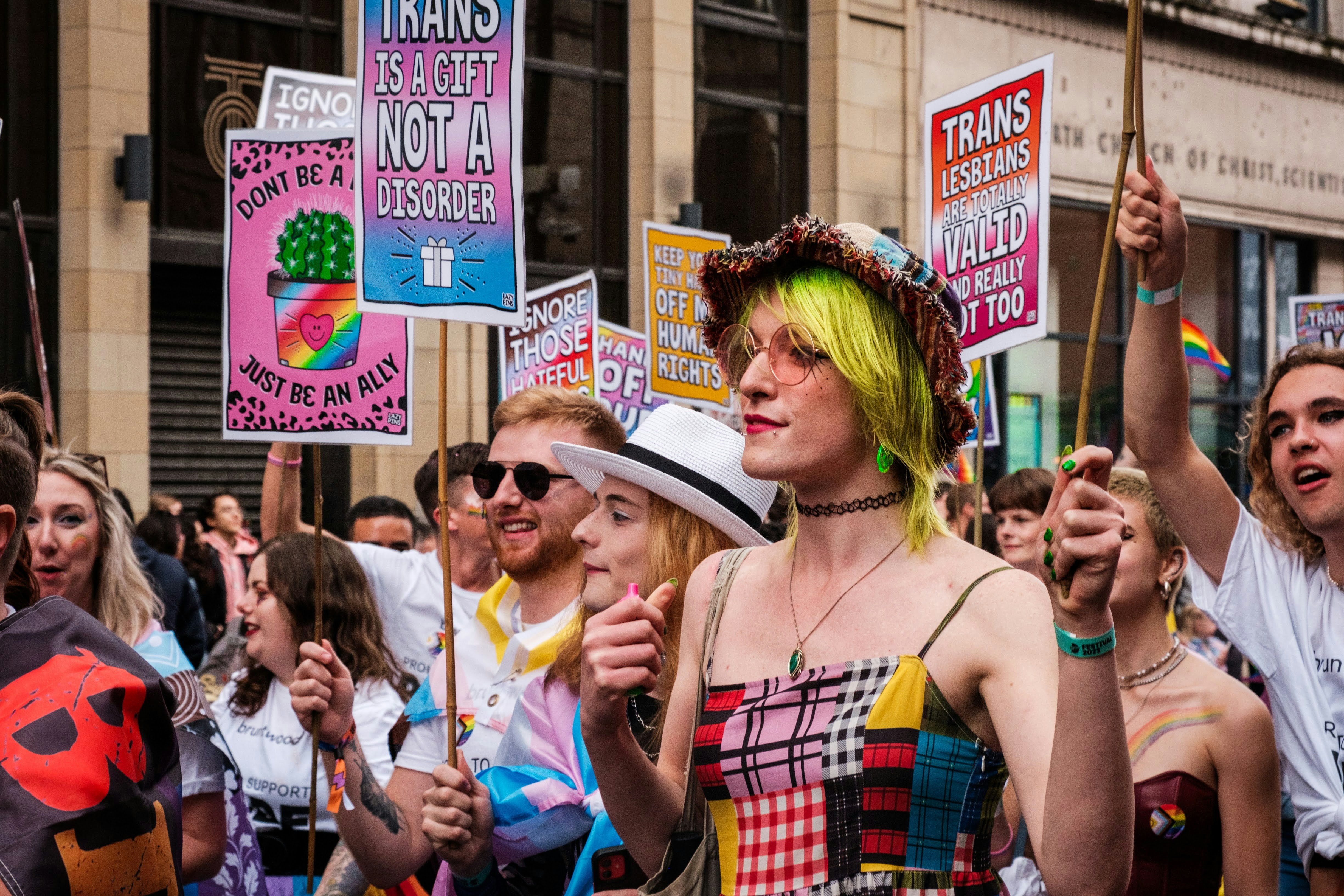Introduction to TERFs and GCs
To understand the targeting of trans individuals by certain factions within feminist movements, it is essential to first define and grasp the ideologies of TERFs (Trans-Exclusionary Radical Feminists) and GCs (Gender Critical individuals). Both terms have emerged within contemporary discourse surrounding gender identity, embodying diverse viewpoints on gender and its sociocultural implications.
TERFs advocate for a brand of feminism that posits that only individuals assigned female at birth should be recognized as women, thereby excluding trans women from the feminist movement. This exclusionary stance often stems from a belief that gender is intrinsically tied to biological sex, leading to a perception that trans women undermine women’s rights and realities. This ideology often manifests in the language of “womanhood” and the assertion of what constitutes a “real” woman, positioning TERFs in direct opposition to trans-inclusive perspectives.
On the other hand, GCs may not exclusively endorse all tenets of TERF ideology but share similar concerns regarding the implications of gender identity policies. Gender Critical individuals express skepticism particularly towards the idea that gender identity can supersede biological sex, raising questions about the implications this may have on various categories such as sports, women’s spaces, and reproductive rights. While GCs share some beliefs with TERFs, their arguments are often framed around the protection of sex-based rights rather than outright exclusion.
The historical backdrop of these ideologies is deeply intertwined with the evolution of feminist thought and activism. Throughout history, feminists have fought for women’s rights based on shared experiences and biological realities. However, as society’s understanding of gender expands, the debates within feminist circles over the inclusion of trans individuals have intensified, resulting in a schism. This divide has significant implications for the ongoing discussions surrounding gender, identity, and rights, particularly as they relate to how these groups approach and often target the trans community.
Psychological Factors Behind Targeting Behavior
The targeting of transgender individuals by certain radical feminist groups such as TERFs (Trans-Exclusionary Radical Feminists) and GCs (Gender Critical feminists) can be understood through various psychological lenses. A critical aspect to consider is the potential unhappiness these individuals may experience concerning their own self-identity. Individuals grappling with identity issues often find themselves projecting their internal conflicts onto others, leading to an adverse reaction toward those who embody the identities they struggle to accept.
Narcissism may also play a significant role in driving the targeting behavior of some TERFs and GCs. Narcissistic individuals frequently require external validation to maintain their self-esteem, and they might perceive marginalized groups, such as transgender individuals, as threats to their identity and social standing. Consequently, they may adopt hostile attitudes towards trans individuals to reinforce their own status and justify their beliefs. This dynamic creates a vicious cycle where self-doubt, narcissism, and disdain for others coexist, contributing to the perpetuation of negative narratives surrounding trans individuals.
Theories in psychology suggest that individuals often strive to establish a sense of superiority as a defense mechanism against feelings of inadequacy. For TERFs and GCs, this may manifest through the denigration of trans individuals, whom they view as infringing upon their understanding of gender and identity. The projection of personal insecurities onto a vulnerable group can be particularly harmful, reinforcing stereotypes and societal divisions. Studies indicate that such behaviors are not isolated incidences but rather part of broader patterns that reflect deep-rooted psychological issues within the aggressors.
Understanding these factors is crucial in contextualizing the hostility faced by transgender individuals. By recognizing the psychological struggles that contribute to targeting behavior, more effective strategies can be developed for addressing and combating the discrimination trans individuals encounter in society.
Societal Influences and Cultural Conditioning
The societal and cultural influences on attitudes towards transgender individuals, particularly among Trans-Exclusionary Radical Feminists (TERFs) and Gender Critical (GC) groups, are multifaceted and deeply ingrained in the fabric of society. These groups often draw upon traditional gender norms, which dictate rigid categories of masculinity and femininity. Such norms are perpetuated through various channels, including family, education, and religious teachings, ingraining the belief that gender is strictly binary and immutable.
Media representation plays a pivotal role in shaping public perceptions of gender identity. The portrayal of transgender individuals in films, television, and literature frequently leans towards stereotypes or sensationalism, which can reinforce negative stereotypes. Coupled with a lack of nuanced narratives around trans experiences, such media portrayals contribute to societal misconceptions. People may develop biased opinions based on these limited representations, leading to a misunderstanding of the transgender community as a whole.
Cultural narratives further amplify these perspectives. Historical and cultural contexts often frame gender diversity as deviant against established societal norms. This framing can generate stigma and prejudice against trans individuals. The echo chambers that arise within communities of TERFs and GCs intensify these beliefs, creating environments where dissenting opinions are discouraged. In these enclaves, narratives that support strict definitions of gender are continually reiterated and reinforced, creating a self-sustaining cycle of animosity towards the trans community.
In essence, societal norms, media portrayals, and cultural narratives collectively influence the attitudes of TERFs and GCs, leading to entrenched beliefs that oppose the acceptance of transgender individuals. Understanding these influences is crucial for comprehending the broader social dynamics that contribute to anti-trans sentiments and discrimination.
The Impact of Targeting on the Trans Community
The targeting of transgender individuals by Trans-Exclusionary Radical Feminists (TERFs) and Gender Critical (GC) groups has profound repercussions on the mental health and overall well-being of the trans community. The psychological impact of such discrimination is far-reaching, creating a landscape marked by anxiety, depression, and feelings of isolation. Hostility directed at trans individuals often undermines their sense of self-worth and identity, leading to detrimental outcomes that affect various aspects of their lives, including family relationships, employment, and social connections.
Research indicates that consistent exposure to discrimination and hostility can result in chronic stress, which is known to have significant implications for mental health. Trans individuals may experience heightened levels of social anxiety, which can further alienate them from supportive social interactions. This cycle of marginalization cultivates an environment where feelings of hopelessness and despair may become prevalent among members of the trans community. The emotional toll can also manifest physically, leading to a higher incidence of health issues among those who are targeted.
However, resilience plays a critical role in helping trans individuals navigate these challenges. Building supportive networks and connections within and outside the LGBTQ+ community can enhance coping mechanisms. Engaging in affirming spaces, whether that be support groups, advocacy organizations, or simply building friendships with allies, serves as a powerful counter to the negative narratives perpetuated by TERFs and GCs. Furthermore, education and advocacy aimed at dismantling harmful stereotypes can create an atmosphere of solidarity that empowers trans individuals.
In conclusion, the psychological impact of targeting by TERFs and GCs is significant and multifaceted. It is crucial for the trans community to have access to resources, support, and advocacy that promote mental well-being and affirm their identities. By fostering an environment of support and understanding, we can challenge harmful narratives and cultivate resilience within the trans population.









Leave a Reply
You must be logged in to post a comment.